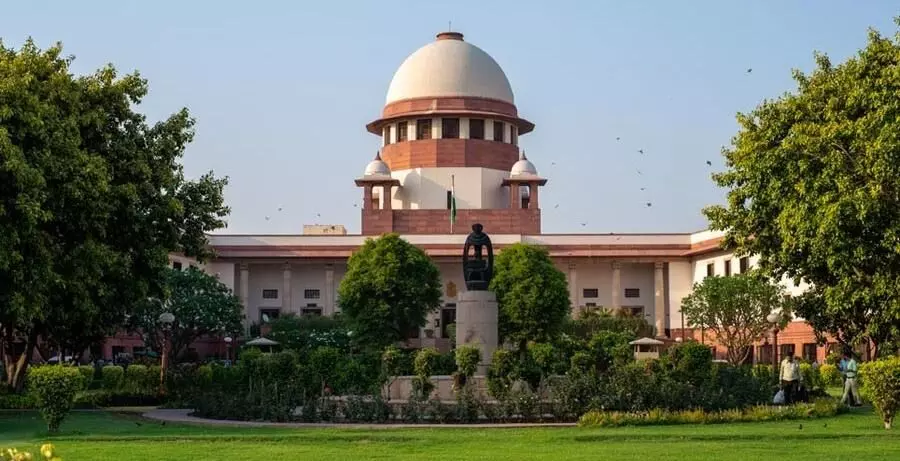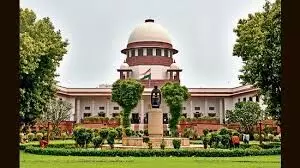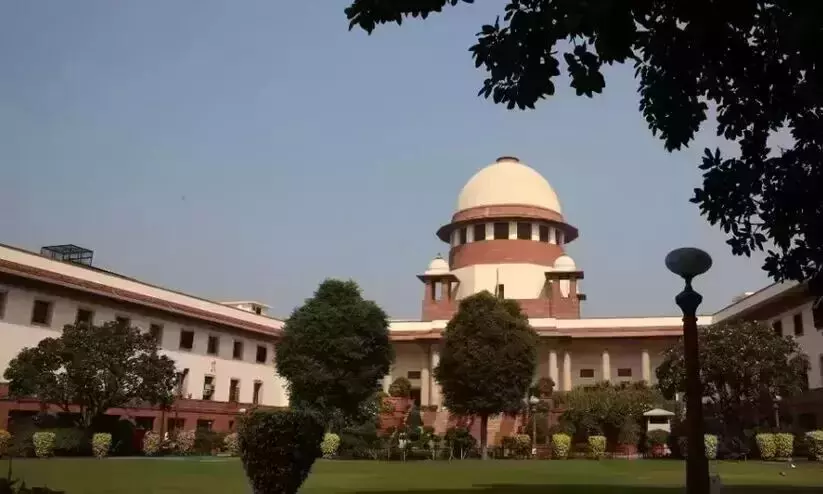
SC verdicts bring jail and bail to the fore again
text_fieldsThe principle of law that in criminal proceedings bail is the rule and jail is the exception was eloquently espoused by late Justice VR Krishna Iyer in a judgment in 1977. Two recent judgments by the Supreme Court have brought this principle again under discussion. One is the judgment issued by Justice Abhay Oka and Justice Augustine George Masih on Tuesday. The court asserted that even if cases are charged under the UAPA with strict provisions against granting bail, unnecessary detention and denial of bail were in violation of the right to life and personal liberty enshrined in Article 21 of the Constitution.
The verdict of the Patna High Court was quashed and conditional bail was granted to the accused, with the apex court stressing that it is the duty of the court to check if the accused is eligible for bail as per the law even when the prosecution's allegations are grave. The references of the Supreme Court come after granting bail to a Bihar native who was arrested under laws including UAPA for renting the upper floor of a house to the banned organization Popular Front of India.
In the case filed by the National Investigation Agency (NIA), the prosecution alleged that retired police constable Jalaluddin Khan, accused of complicity in crimes including trying to sabotage the Prime Minister's visit to Bihar in 2022, helped organize the PFI meeting in the upper floor of the house. However, Khan argued that he had no connection with PFI and only rented out part of the house. The court held that there was no evidence of any complicity in the alleged crime or conspiracy. The court also observed that it could not be proved that Khan had any antecedent involvement in any terrorist organization. The charge against Khan was based on the contention that the PFI had planned to commit violence against Muslim oppression and organized training for it in July 2022. Therefore, the NIA special court rejected the bail plea.
The Patna High Court also rejected the appeal filed against it. Advocate Nooruddin Jangi, who appeared for him, had also been arrested. The charge was that by advocating for Khan, he provided assistance to the accused organization. The High Court however granted bail to the lawyer saying that providing legal assistance to banned organizations does not fall within the definition of offences under UAPA. The UAPA includes provisions that allow governments to imprison and deny bail at will. Governments are using it to accuse people of crimes and deny them bail thereby causing torture in effect. Protracted legal proceedings will result in punishment for the accused. Even in cases where there are no crimes, the law can be a tool for the long-term oppression of persons opposed to them.
The experience is that most of the accused charged with UAPA are acquitted, showing a low conviction rate. It is in this context that the legal process itself becomes a punishment for the accused. Freedom and rights guaranteed to citizens by the Constitution are trampled there. The counterargument of the exponents of the establishment mostly is that criminals and traitors do not deserve fundamental rights. But the injustice begins right there when the accusations are made. Thus the Supreme Court on Tuesday overturned the practice of courts denying bail to victims of unjust imprisonment who are shocked by the allegations put out against them.
In a kindred case's verdict of last Thursday, Delhi's former Deputy Chief Minister Manish Sisodia was granted bail after 17 months in jail.by the apex court's bench of Justices B R Gavai and K V Viswanathan. Sisodia was detained for so long because of the charges filed by central agencies ED and CBI on the alleged corruption in the Delhi government's liquor policy. The bail pleas filed were rejected at various stages—some of them in the Supreme Court itself. In October last year, as the trial was being prolonged, the prosecution told the court that the trial would be completed in six to eight months. If not, he could again approach the court for bail, the court said. Taking the suggested timeline at face value, the court denied bail for the time being accepting that the charge sheet would be submitted before July 3 and agreed to extend the pretrial detention, a decision which was criticized by legal experts.
The essence of the judgment is that indefinite imprisonment and denial of bail are recognized as infringements on civil liberties. This also underlined the fact that none of the strict provisions of the Prevention of Money Laundering Act (PMLA) can justify the denial of fundamental rights. Civil rights advocates are elated by the court's ruling that bail is the law and no special statute can cause it to be violated as long as there is no risk of situations that cause the denial of bail such as the defendant absconding, destroying evidence, or influencing witnesses




















